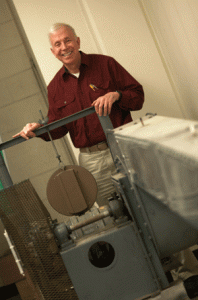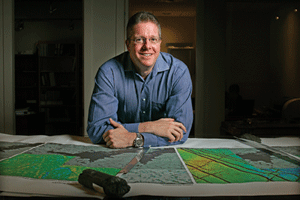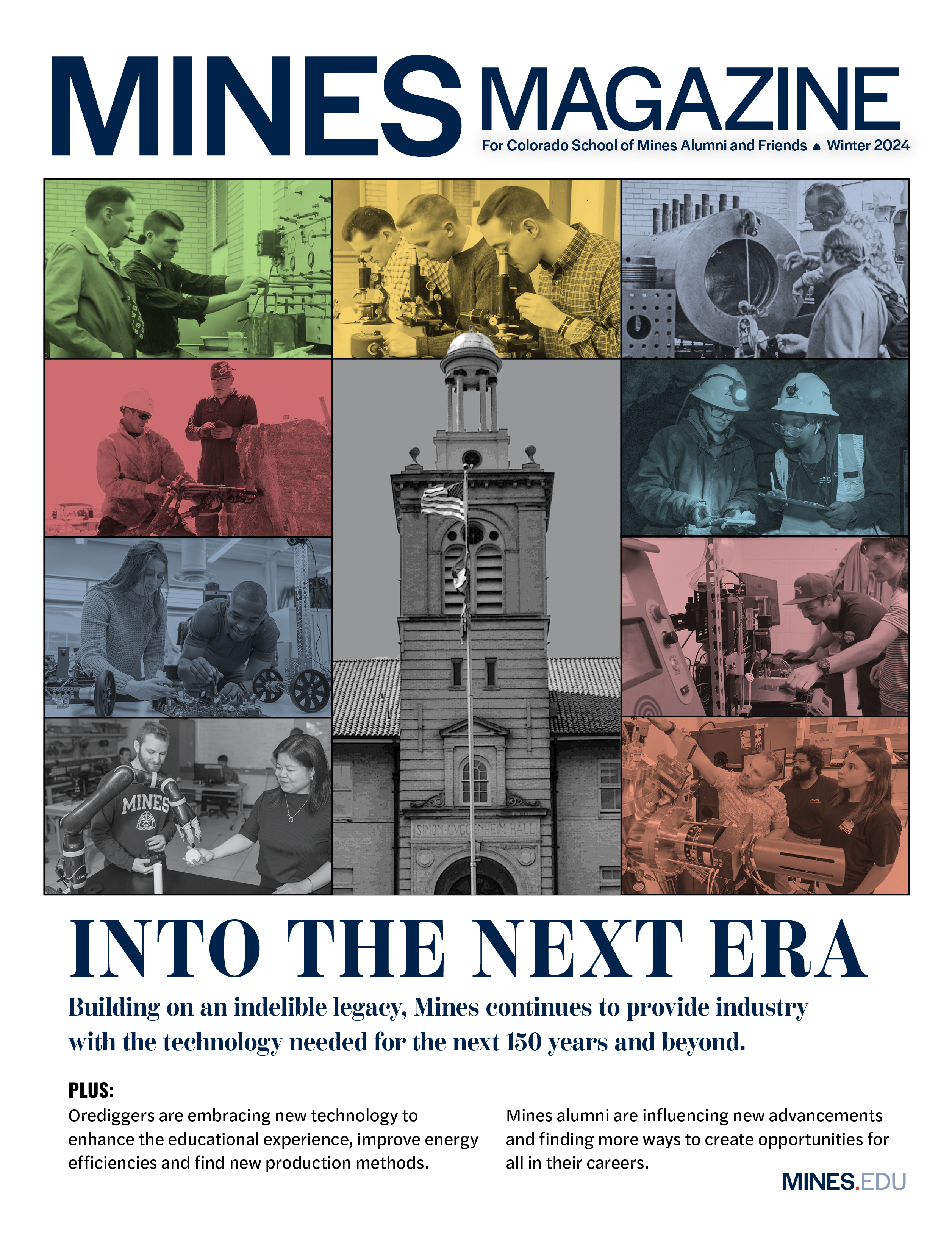 You’re 60 years old. You’ve had a successful engineering career, spanning four decades and several continents, and you are retiring as president and chief operating officer of a mining company with a thousand employees. Businesses are clamoring for your expertise as an independent consultant, and job offers come in from South America and Africa. What would you do next?
You’re 60 years old. You’ve had a successful engineering career, spanning four decades and several continents, and you are retiring as president and chief operating officer of a mining company with a thousand employees. Businesses are clamoring for your expertise as an independent consultant, and job offers come in from South America and Africa. What would you do next?
Finding himself in just this situation, John Grubb PhD ’08 decided to go back to school, earn a doctorate and fulfill a long-term goal of teaching future mining engineers. A 1969 graduate of Virginia Tech, Grubb began teaching at Colorado School of Mines when he enrolled in the doctoral program in 2006. His mining engineering courses were so successful that he was asked to stay on as an adjunct professor after he graduated. He accepted the job, but, after weighing the salary against other tax considerations, he took the position as a volunteer.
“My industry was very good to me,” Grubb says, simply. “Now I want to give back.” He’s now teaching classes in mine ventilation, coal mining methods, mine management and mineral resource development.
Holding a PhD is important for his credibility, but Grubb’s greatest resource in the classroom is his experience. During his 40-year career, he’s managed more than two dozen mines and overcome countless challenges. At a copper and gold mine in Papua New Guinea, he prevented closure by solving some complex environmental problems; and when he realized a Zimbabwean mine was simply too dangerous to operate, he made the tough decision to close it down.
Students value the wealth of experience he brings to the classroom: “He drew on his own real-life experience to put together detailed scenarios of what they might encounter. I use some of the principles I learned from him every day in my current job,” says Brandon Sullivan ’09, a former student who now works as a mining engineer at West Elk Mine in Somerset, Colo. “He prepared me better for entering industry than any other professor at Mines. Any time I had a question, he had an answer.”
While Grubb brings the real world to students, he also brings students to the real world, organizing and paying for numerous student field trips. “Being in a mine is part of the education of a mining engineer,” says Grubb. “To actually see what we were learning about, that was huge for a lot of students,” says Sullivan. Grubb and his wife have also donated some new equipment to the mining engineering department, providing students with access to state-of-the-art technology.
Lizeth Chamorro, a graduate student in mineral and energy economics who worked for nine years in the mining industry, says Grubb’s course expectations are high but rewarding. “The fact that he doesn’t take money to teach, he just wants to share his life experiences,” Chamorro says, “I think it’s really remarkable, and really valuable.”
Anne Button




JOHN GRUBB
I have known John since he was in VPI and worked as a co-op student at Pittston’s Clinchfield Coal. Here he worked in engineering and operations at various capacities learning coal mining. He knows the importance of practical experience coupled with a formal mining engineering education. When he graduated he entered active service-bound for Viet Nam. He was trained as a green beret and served in Viet Nam in the corps of engineers.
After serving with distinction he returned to Clinchfield Coal and soon became a production foreman. His success led to being superintendent of a new mine at McClure, Va. where his organization and planning skills brought production to a million tons per year. From there he moved to Utah International in Kentucky managing the operations and engineering in the development of a 180,000 acre virgin coal reserve. His dedicated efforts brought the project to a 3 million ton capacity before being sold to Consol. John move on with BHP to manage their Navajo Four Corners operation and then on to Australia as VP operations of their coal operations. He retired after working as president of BHP’s Indonesia copper/gold and also Zimbabwe platinum.
His students are very fortunate to study under John who has achieved his goal as the ‘best mining engineer’. He is also a man of very high integrity, extremely well organized in whatever he attempt, and an excellent example for the young engineers to follow.